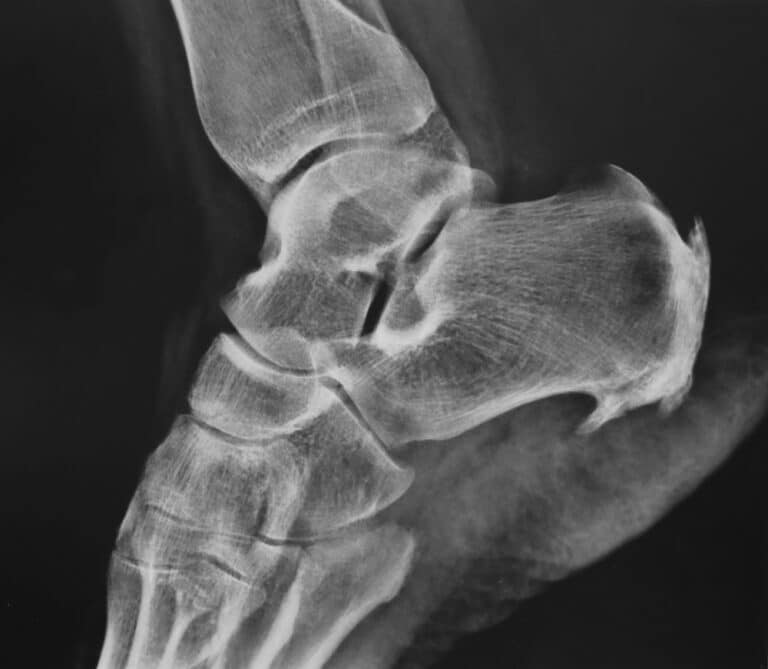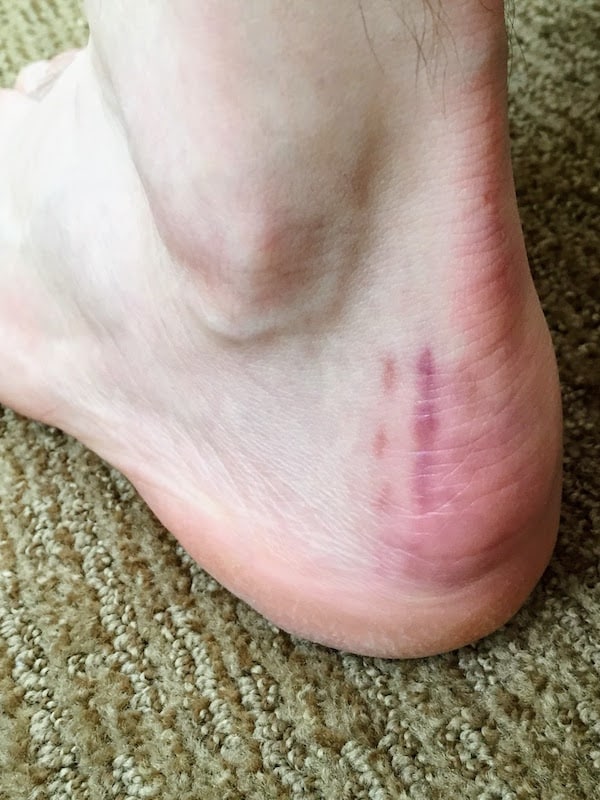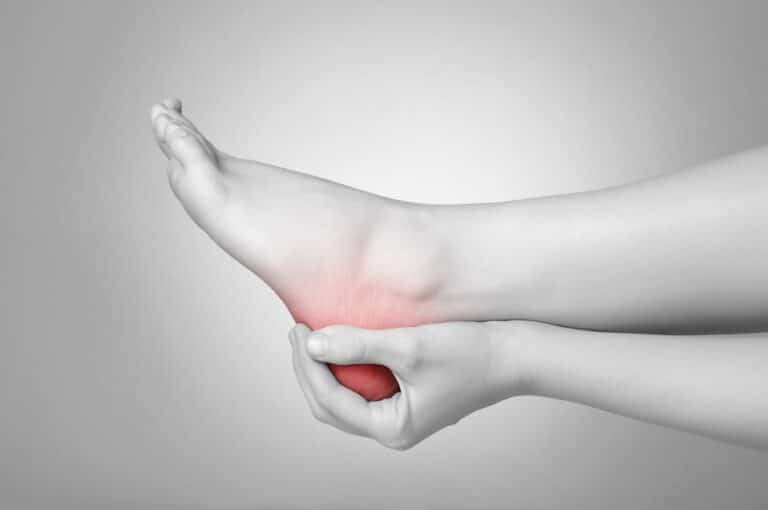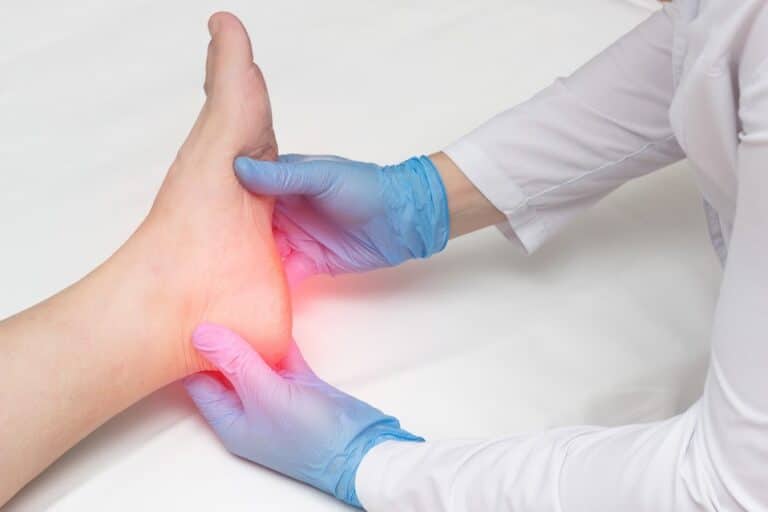If you had minimally invasive bunion surgery and are experiencing discomfort, it’s normal to be worried.
Nerve damage is a rare complication after bunion surgery, but it can occur. Symptoms of nerve damage can vary depending on the type and location of the nerve affected. Some of the most common symptoms of nerve damage after bunion surgery includes:
- Numbness or tingling in the toes or foot
- Loss of sensation in the toes or foot
- Weakness or muscle atrophy in the toes or foot
- Burning or electric-like sensations
- Pain or discomfort in the affected area
- Loss of reflexes in the affected area
If you experience any of these symptoms after bunion surgery, it is important to contact your surgeon as soon as possible. They may want to perform an examination to determine the cause of the symptoms and recommend an appropriate course of treatment.
Special Offer: $500 Discount on Bunion Surgery
What Happens When Your Nerves Are Damaged?
Nerve damage is one of the problems after bunion surgery, and it occurs due to constriction in the nerve area, which can happen when removing tissue.
With constricted nerves, the chemicals necessary for healthy movement don’t travel as well as they should. In that case, patients may experience difficulty moving the operated foot and stiffness in the toe.
What Are the Types of Nerve Damage?
There are three types of nerve damage: Neurapraxia, Axonotmesis, and Neurotmesis. In all cases, the nerve needs to be repaired.
- Neurapraxia – the nerve is bruised and will heal on its own,
- Axonotmesis – the nerve is cut but still attached to the muscle,
- Neurotmesis – the nerve is cut and detached from the muscle.
How Common Is Nerve Damage After Surgery?
From most bunion surgery experiences, nerve damage can be common. According to one study, nearly half of patients experienced it to some degree. If you’re worried about how bad bunion surgery is, consult a surgeon to feel more encouraged about the procedure.
What Tests Show Nerve Damage?
If your doctor suspects nerve damage, they’ll do a physical examination first. After identifying areas experiencing weakness or numbness, they may order one of the following:
- Nerve conduction studies to measure the speed and strength of electrical signals and identify whether the nerves are damaged,
- Ultrasound imaging to determine swelling and constriction,
- An MRI tuned to show nerves.

What Are the Symptoms of Nerve Damage After Bunion Surgery?
Nerve damage can cause many symptoms, depending on the nerves affected. Some symptoms after all types of bunion surgery include numbness, weakness, pain, and physical changes.
Numbness
Numbness is common; when the nerves are damaged, they may not be able to send proper signals to the brain, leading to numbness in the affected area.
Weakness
Weakness can cause a loss of feeling or movement in the affected foot, making it permanent in some cases. Physical therapy after surgery can significantly reduce the risk of nerve damage.
Pain
Nerve damage caused by bunion surgery can be painful, making it difficult to walk or even stand. However, doctors prescribe painkillers for this, along with physical therapy.
Physical Changes
Some physical changes that may occur due to nerve damage include muscle atrophy, inability to move or feel certain body parts, and changes in skin sensation.

How Long Does It Take for Nerves to Repair After Surgery?
The average time for nerves to heal after surgery is four to six months. However, it can take up to a year for complete healing to happen.
Doctors recommend physical therapy to strengthen muscles and improve range of motion, especially during the initial stages of bunion surgery recovery.
What Helps With Nerve Pain After Surgery?
A few things can help with nerve pain during bunion surgery recovery:
- Keeping the area clean and dry,
- Cold compresses,
- OTC pain medications,
- Physical therapy,
- Self-care,
- Walking and moving mindfully,
- Wearing supportive shoes.
Consult With Your Surgeon in Miami About the Symptoms of Nerve Damage
If you want bunion surgery in Miami, look no further than Luxe Foot Surgery. Our professionals can introduce you to the process and teach you about symptoms and treatment to ease your mind.
Contact us via email, fill out a free consultation form on our website, or call our office Monday through Friday between 9 AM and 6 PM.

FAQ
If you still have questions, here are some helpful FAQs.
How Do You Know if You Have Permanent Nerve Damage in Your Foot?
You’ll know if you have permanent nerve damage if you experience sharp pain or burning sensations, numbness or tingling in the foot, difficulty walking, or loss of balance and weakness.
What Are the Signs of Nerve Damage Healing?
You may notice the affected area swell up. That’s the body trying to bring in more blood to start the healing process. As nerve damage heals, you may also see new growth in skin cells or new nerve endings and experience less pain and discomfort.




